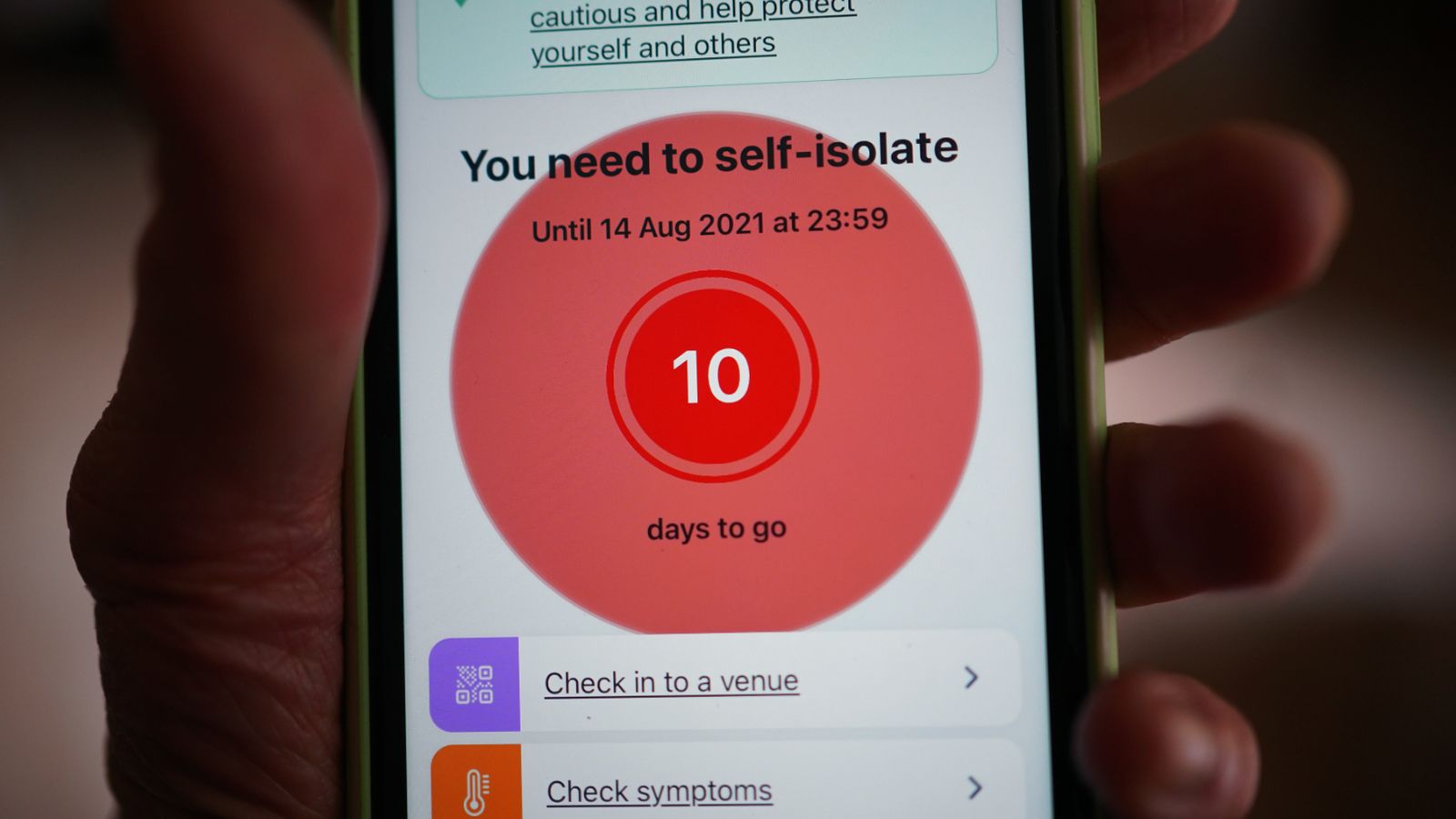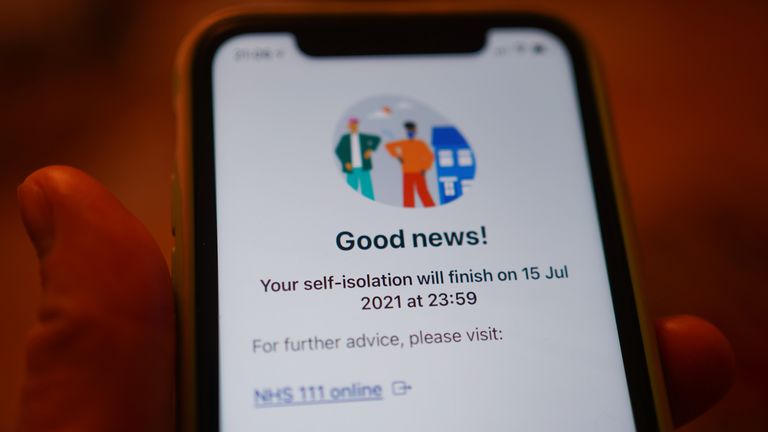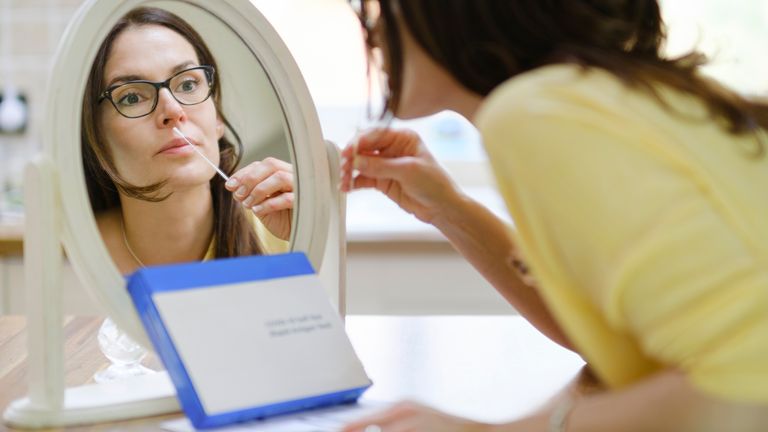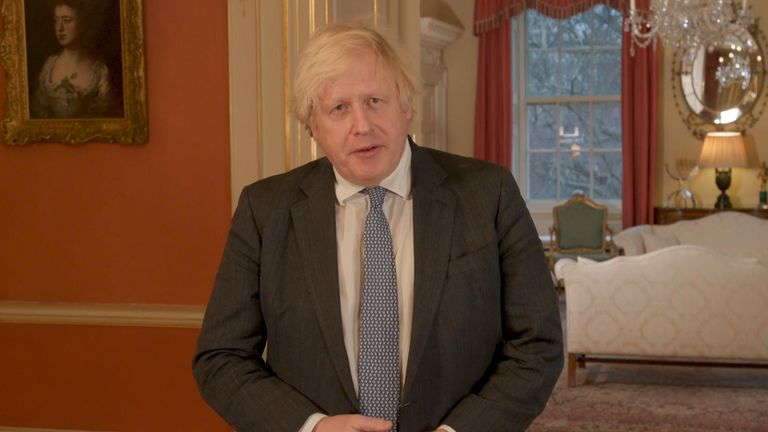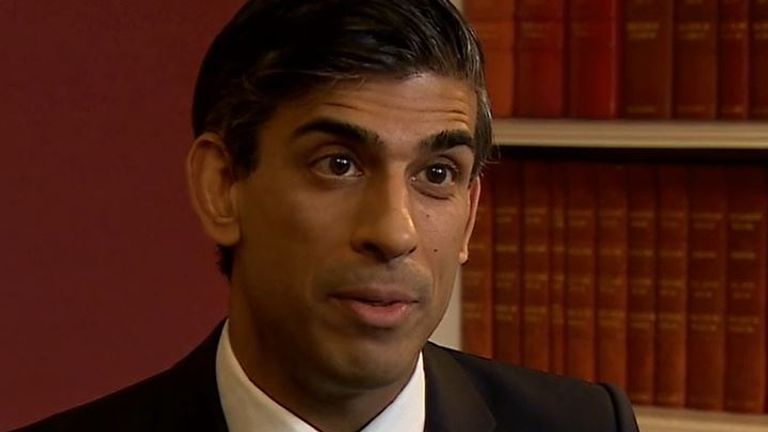The self-isolation period for people in England will be cut from 10 days to seven for those who can produce negative lateral flow results on both day six and their final day of quarantine.
Making the announcement, Sajid Javid said the move has been informed by the UK Health Security Agency (UKHSA) and that those leaving quarantine after day seven should “continue to remain cautious”.
The health secretary did not directly answer whether the new rule is needed to keep the NHS going, with many healthcare staff unable to work due to having to isolate, but said the decision will “reduce the disruption to people’s everyday lives caused by the pandemic”.
It follows warnings that the NHS, social care and other frontline services are already facing chronic staff shortages due to the rapid spread of the Omicron variant.
Currently, people have to self-isolate for 10 full days if they have tested positive for coronavirus.
Announcing the rule change to broadcasters, Mr Javid said: “We want to reduce the disruption to peoples everyday lives caused by the pandemic so today we will be cutting the self-isolation period from 10 days to seven days for those people that take a lateral flow on day six and day seven and the result of both those tests are negative.
“This decision has been informed by the advice of our clinicians at the UKHSA who have looked at this very carefully and they are very comfortable that the protection provided by making this change – so that people can leave isolation after day seven as long as they have taken these two lateral flow tests and the results are negative – that the protection it provides is very similar to 10 days of isolation without tests.
“Of course, anyone who leaves after day seven under this new procedure should continue to remain cautious but we are also very clear that the very best way to protect ourselves our loved ones our community is to make sure you get boosted if your eligible.”
The health secretary said the move was “a very sensible, balanced and proportionate step” to take.
On Tuesday, an expert told Sky News that cutting the coronavirus self-isolation period would only be safe if lateral flow tests were made compulsory on the final day.
Asked whether the proposed measures would be safe, Professor Andrew Preston said: “If combined with a negative lateral flow test to release people on day seven, then yes.
“It seems like a good compromise between asking people to isolate and trying to make it as palatable as possible to minimise the effects of another so-called ‘pingdemic’.”
The COVID isolation period was reduced from 14 days to 10 this time last year as the Alpha variant spread rapidly through parts of the UK.
Mandatory isolation was dropped for vaccinated close contacts of a positive case during the Delta wave this year.
That has now been replaced with daily lateral flow testing.
Meanwhile, the government is under increasing pressure from scientists to make a decision on further restrictions to slow the spread of Omicron.
On Tuesday, Prime Minister Boris Johnson confirmed he will not introduce any further COVID restrictions in England before Christmas, but warned that the situation remains “finely balanced” ahead of the New Year.
In a video posted on social media and released by Downing Street, the prime minister said “people can go ahead with their Christmas plans” but urged caution and suggested people should take a test before meeting elderly relatives.
The PM also warned that the situation “remains extremely difficult”, adding: “What I can say tonight is that naturally we can’t rule out any further measures after Christmas, and we’re going to keep a constant eye on the data – we will do whatever it takes to protect public health.”
Earlier on Tuesday, Rishi Sunak announced an additional £1bn in financial support for the hospitality and leisure sectors, with every business able to claim a one-off cash grant of £6,000.
The move came amid ongoing reports that the government is to introduce more restrictions in England before the New Year.
Mr Javid told reporters that the situation is “finely balanced”, adding: “We will keep it under review and if new restrictions are required should the data show they are required then of course we won’t hesitate to act.”
Asked if a return to Step 2 of the government’s roadmap out of lockdown – which includes a ban on indoor household mixing – would be proportionate, the health secretary once more said “we want to make sure that we will keep the data under review and if we do need to take further action, that is an if, depending on the data then we will do what is necessary”.
Pressed on whether people should make plans to celebrate the New Year, Mr Javid said “people are already being very cautious”.
On Tuesday, the UK recorded a further 90,629 coronavirus cases and 172 deaths in the latest 24-hour period.
